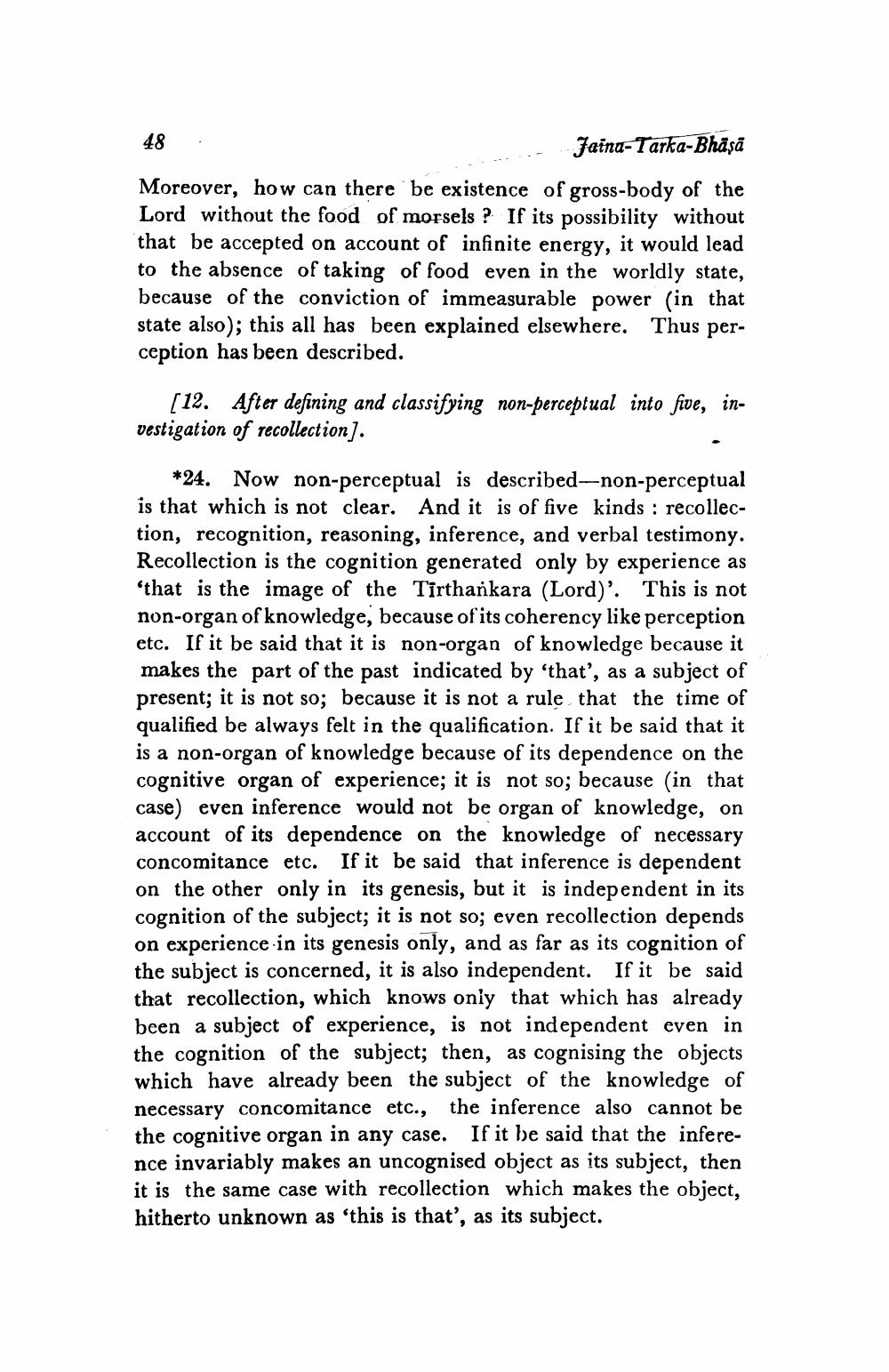________________
48
Jaina-Tarka-Bhāṣā
Moreover, how can there be existence of gross-body of the Lord without the food of morsels? If its possibility without that be accepted on account of infinite energy, it would lead to the absence of taking of food even in the worldly state, because of the conviction of immeasurable power (in that state also); this all has been explained elsewhere. Thus perception has been described.
[12. After defining and classifying non-perceptual into five, investigation of recollection].
*24. Now non-perceptual is described-non-perceptual is that which is not clear. And it is of five kinds : recollection, recognition, reasoning, inference, and verbal testimony. Recollection is the cognition generated only by experience as 'that is the image of the Tirthankara (Lord)'. This is not non-organ of knowledge, because of its coherency like perception etc. If it be said that it is non-organ of knowledge because it makes the part of the past indicated by 'that', as a subject of present; it is not so; because it is not a rule that the time of qualified be always felt in the qualification. If it be said that it is a non-organ of knowledge because of its dependence on the cognitive organ of experience; it is not so; because (in that case) even inference would not be organ of knowledge, on account of its dependence on the knowledge of necessary concomitance etc. If it be said that inference is dependent on the other only in its genesis, but it is independent in its cognition of the subject; it is not so; even recollection depends on experience in its genesis only, and as far as its cognition of the subject is concerned, it is also independent. If it be said that recollection, which knows only that which has already been a subject of experience, is not independent even in the cognition of the subject; then, as cognising the objects which have already been the subject of the knowledge of necessary concomitance etc., the inference also cannot be the cognitive organ in any case. If it be said that the inference invariably makes an uncognised object as its subject, then it is the same case with recollection which makes the object, hitherto unknown as 'this is that', as its subject.




